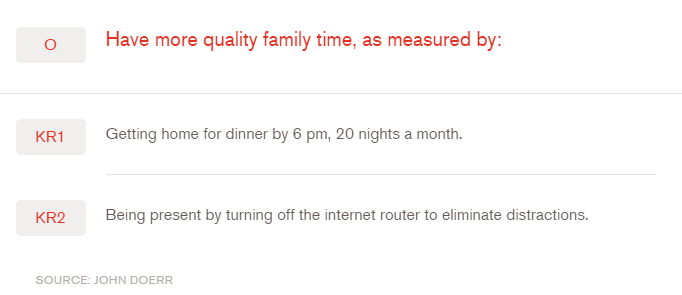The New Year’s Conundrum
“As long as I made getting rid of myself my only goal, every situation was a fruitful experience." Michael Singer
I get excited every time I enter the liminal space between the years. The blank canvas of 12 fresh months inspires me to dream up all the amazing things I’d like to accomplish. Anything seems possible. It’s like I woke up as a different person, ready to conquer the world, as if I’d never heard about the planning fallacy.
But you can guess what happens next. The goals and resolutions quickly drown out in the noise of everyday busyness. Turns out I’m still the same person - same habits, strengths, and flaws. Same blind spots. The boundless enthusiasm long forgotten I draw up new plans a month later.
But what’s the alternative? No plan or goals at all? No delicious daydreaming about what could be if only?
At the very least, it’s a time to reflect on how we spent our time and what our priorities are. Today, I want to explore a short sequence of ideas on how to approach the new year’s empty canvas.
Plan your life like Google? (OKRs)
What is important? (deathbed, destination, and regret minimization)
The past year review.
Surrendering to flow (creating conditions)
Bringing it all together: Happy New Year!

Plan your life like Google? (OKRs)
“OKRs have helped lead us to 10x growth, many times over. They've helped make our crazily bold mission of "organizing the world's information" perhaps even achievable. They've kept me and the rest of the company on time and on track when it mattered the most.” Larry Page
My first instinct was to switch from a simple list of goals to a system. Get sophisticated and organized. Swap resolutions for Objectives and Key Results. OKRs made their way to Google via venture capitalist John Doerr who had picked them up while working for Andy Grove at Intel. Doerr’s formula is roughly: “I will (Objective) as measured by (this set of Key Results).”
“Objectives are memorable qualitative descriptions of what you want to achieve. Objectives should be short, inspirational and engaging. Key Results are a set of metrics that measure your progress towards the Objective.”
Google has a whole page with more information and recommends no more than three to five objectives which convey “tangible endpoints and states.” The key results then are “measurable milestones which, if achieved, will directly advance the objective.” Simple enough.
Why not use this approach for both work and personal goals, I thought. You don’t have to reinvent the wheel, just one an elaborate templates, like this one by Patricia Mou.
I quickly realized that it was easy to find metrics (“grow free subscribers to 10,000”) but very difficult to select the most important 3-5 objectives. And I started to anticipate the complexity of tracking several key metrics each. I stared at a half-done spreadsheet, a few sketches on paper, wild scribbles on my notepad. I was getting lost in the details.
What is important? (deathbed, destination, and regret minimization)
“There are basically three really big decisions you make in your early life: where you live, who you’re with, and what you do.
If you’re going to live in a city for ten years, if you’re going to be in a job for five years, if you’re in a relationship for a decade, you should be spending one to two years deciding these things. These are highly dominating decisions. Those three decisions really matter.” Naval
I got this all wrong for years. I didn’t understand what was important to me and didn’t spend enough time figuring out the big decisions, those that alter the trajectory of our lives. My goals were built on an external scorecard and felt flat and uninspiring. I wasn’t committed.
I wrote about this recently after going through an exercise recommended by Jim O’Shaughnessy: for one month I filled a blank page with answers to the question “What do I want in life?” My conclusion was that “I want to follow my own path and share it with a partner, family, community, and the world at large. What I really want in life are experiences, activities, and states of being, not possessions.”
It’s not perfect but I’d recommend it as a first step at digging down to what Luke Burgis calls “thick” desires – the intrinsic ones that resonate with you, as compared to the ones you constantly pick up through social interaction and mimicking.
There are other helpful exercises. The stoics suggested to imagine yourself on your deathbed, reminiscing about your life. Which decisions and actions would you be happy about? What would you regret? How would you have liked to spend you time? How would you like to be remembered? What do you truly value?
A concept I picked up from Nick Sleep is destination analysis: working backwards from the desired destination to the processes and habits today.
“When they analyzed companies and interviewed CEOs, Sleep and Zakaria probed for insights with a long shelf life. They sought to answer such questions as What is the intended destination for this business in ten or twenty years? What must management be doing today to raise the probability of arriving at that destination? And what could prevent this company from reaching such a favorable destination? They referred to this way of thinking as ‘destination analysis.’
For example, they wanted to know, Is this company strengthening its relationship with customers by providing superior products, low prices, and efficient service? Is the CEO allocating capital in a rational way that will enhance the company’s long-term value? Is the company underpaying its employees, mistreating its suppliers, violating its customers’ trust, or engaging in any other shortsighted behavior that could jeopardize its eventual greatness?” Richer, Wiser, Happier
What is your long-term destination? Where would you like to be a decade from now? What are the key behaviors that can make this a reality (an inevitability, really) – and are you allocating enough time to each?
Another interesting idea is Jeff Bezos’s “regret minimization” framework:
“I knew when I was eighty that I would never, for example, think about why I walked away from my 1994 Wall Street bonus right in the middle of the year at the worst possible time. At the same time, I knew that I might sincerely regret not having participated in this thing called the Internet that I thought was going to be a revolutionizing event. When I thought about it that way … it was incredibly easy to make the decision.” (via farnam street)
Again, it’s a technique to clarify our thinking and bridge the gap between our imagined future self and today. How can we improve the chance that “future us” will think back at this moment and realize that we changed the trajectory of our lives for the better?
William Green talked to me about hedge fund manager Mike Zapata, a former Navy SEAL, whose priorities are “God, family, fund—in that order.” Even if you don’t agree, that is some admirable clarity.
The past year review
I picked up another really interesting exercise recently. Tim Ferriss did a brief podcast explaining that he abandoned New Year’s Resolutions in favor of a ‘past year review.’ Sit down with your calendar and a pad of paper and go through each week and select the "people or activities or commitments" which triggered "peak positive or negative emotions." What was great and what really dragged you down? Then identify the common patterns and people.
The next step is to schedule more of the good stuff, "it’s not real until it’s in the calendar," and create a “NOT-TO-DO LIST.” Put that list up somewhere prominently to remind yourself regularly of what you want to remove from your life.
I found this helpful for a couple of reasons. Much like reading a journal it removed a lot of bias that had crept into my memory. And it highlighted some very clear patterns. It also finally allowed me to make use of my detailed daily spreadsheet tracking things like "sleep rating,” “what defined the day,” and “mood/energy: morning, noon, evening” (I eventually gave up on tracking daily meals and other minutiae).
Things that became apparent: time spent with friends was almost always a positive experience. The same for time in nature. Time with family was valuable and rare but more complicated than friends.
Living in Germany was more of a rollercoaster than I remembered with many days of raising my fist to the sky or pulling the blanket over the head. However, I’ve also come to realize that this time was a unique opportunity to reconnect with my family (who I had only seen a few days a year for a decade.) As a result, Christmas this year was delightful.
Writing was great when I found flow and close to my curiosity. The worst moments were when I got stuck on big pieces and went in endless loops editing (when perfectionism took over).
Travel, trips, and events were mostly good. However, there were a few events at which I had a hard time connecting with people. If the opening question of “what do you do” is a thinly veiled “how much do you make/how much can you help me make” rather than “what are you interested in life/how can we learn together,” it’s not for me. The lesson is to schedule more time with friends around who I feel comfortable and can be vulnerable (and find more of them). And trust my gut when it comes to people that decrease my energy level.
Lastly, trying to put the vase of a broken relationship back together with someone who wasn’t interested in making me a priority – awful beyond words. Almost all my friends were right about this but it turns out I’m a very slow learner when I don’t want to face reality.
Based on all of this I took a stab at my own values as a basis for goals.
Creativity (expressing myself and sharing what I know by connecting ideas, telling stories, teaching)
Freedom (to pursue what interests me without worrying about money)
Love (romantic relationship, family, friends, and community)
A “rich” life (learning, exploration, travel, fun, time in nature)
Health (body and mind)
Service (to use my talent and time to enrich the lives of others)
I picked four objectives: to be a full-time writer and creator, to make a comfortable living (that provides the freedom), to make time (and be present) for the important relationships in my life – or build new ones, if they are missing. And, finally, to invest time every day in my health and learning.
Everything else I filed under “aspiration” rather than objectives because it was starting to stress me out.
Surrendering to flow (creating conditions)
"I don’t make choices or decisions. I don’t weigh possibilities. Instead, I observe patterns and move with them. I wait for unfolding. I sense currents and I flow with them. You don’t have to be enlightened to operate this way; you just have to release the tiller." Jed McKenna
Which brings me to the last idea: forget the goals. Stop and trying to make things happen. Find flow instead. I recently finished the book The Surrender Experiment by Michael Singer. After a mini enlightenment as a student, Singer dedicates his life to meditation, yoga, and “surrendering to the flow of the universe.” Every time he faces a big decision or problem, when he feels fear, ego, and resistance creeping up, he practices “letting go” and “nonresistance, whether I liked what was happening or not.”
Rather than his imagined life of solitude and meditation, he builds a temple, attracts a community of followers, hosts famous spiritual teachers, and travels to prisons to meditate with inmates. Out of small construction projects evolves a homebuilding business. Finally, he falls in love with programming and builds a successful medical billing software company.
“I could see that the practice of surrender was actually done in two, very distinct steps: first, you let go of the personal reactions of like and dislike that form inside your mind and heart; and second, with the resultant sense of clarity, you simply look to see what is being asked of you by the situation unfolding in front of you.”
Like a Floridian Forrest Gump, the flow of life takes him from one serendipitous experience to the next. The right person or opportunity always seems to show up. Programmers, managers, and customers walk into his life. Adjacent properties come up for sale. The community and company grow without a simple annual goal. Eventually, his software company even goes. It’s beautiful.
Except that the IPO happens during the dotcom bubble and is part of a complicated deal which merges his business with a roll-up of software distributors. The new management team pushes for a merger with dotcom-darling WebMD. Shortly thereafter, the market topples over and WebMD’s value implodes. Suddenly, Singer finds himself at the helm of a company struggling for survival. A few years later, he and other executives are indicted for manipulating earnings by inflating the revenues of acquired companies. Singer asserts his innocence. The culprit, he claims, was the accountant heading up the dealer acquisitions who worked out a kickback scheme to earn millions. After a decade battling prosecution, Singer finally walks free.
“As long as I made getting rid of myself my only goal, every situation was a fruitful experience.
I actually got more peaceful inside as I dealt with the ever-increasing magnitude of challenges. Life was molding me each day to become who I needed to be in order to handle tomorrow’s tasks. All I had to do was let go and not resist the process.”
I felt conflicted about this story and what to take away from it. First off, I’m inclined to believe Singer’s claim that he was unaware of the malfeasance, but one has to keep in mind that it’s his version of the story. I previously enjoyed his book The Untethered Soul and wanted to believe that it’s possible to take the hand of the tiller and find this mysterious “flow” in life. I’ve seen others do it, or at least it looked that way. And his attitude in the face of adversity was admirable. But hadn’t his passive acceptance landed him in misery?
I think the lesson is as much about what he practiced as it is about setting the right conditions. “Surrendering to the flow” worked as long as the flow was downstream from the right spring: the temple and community it attracted. The people who came into Singer’s life were often self-selected for shared values, shared admiration for teachers or ideas, or with a desire to reciprocate after benefiting from what Singer had created.
Going with the flow stopped working when Singer was introduced to the grinding grifters chasing the dotcom goldrush. With each deal the stakes kept rising until they nearly buried him. Surrender no longer meant receiving flow from his own well. Rather, he was navigating his raft down a treacherous stream selected by someone else - someone with very different motivations.
But the idea of remaining open to the manifold and unpredictable gifts the world has to offer stuck with me. I’m very familiar with the feeling of resistance and the urge to protect my plans, my goals, my time. It’s something I would like to work on in 2022. I know that setting the right conditions is crucial though I don’t know yet what that means in practice. All I know is that it has much to do with relationships and values.

Bringing it all together: Happy New Year!
I hope you found at least a couple of useful ideas in this. I’m still not sure about the right balance of setting goals, evaluating habits and inputs, and waiting for opportunities to reveal themselves. But I feel confident that it all ties back to the same practices: awareness of what is truly important, being present in the moment, and connecting deeply with others. If we create the right conditions in life, we may eventually get what we want – or find that the world offers us something even better.
A happy and prosperous new year to all of you!
Enjoyed this piece? Please let me know by hitting the ❤ button. It makes my day to see whether my readers like the content (it really does!) Thank you!
If you enjoy my work, please consider sharing it with friends who might be interested.🙏






All this thinking about life is just a way to keep from thinking that you will eventually die.
Great tips. Thanks! Just would like to add my secret sauce on sticking to goals and it has worked in the past 2 years. Before that, I was just like 99% of people forgetting in 2 weeks. First you have to find someone else who has his own goals and then is to sit with him weekly, biweekly or monthly, depending on your schedule to review each other. You have to split you goal into timeframes you will sit and review. you can add a bit of flavor like if whoever falls short of KPIs, get punished by giving money. after a while, you will see achieving goals become a competition. Step 1. Split the goal into timeframes, step 2: have someone review it step3: turn it into competition mindset